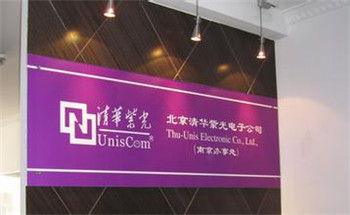
HONG KONG — Advanced Semiconductor Engineering, a Taiwanese company that assembles and tests chips, is not giving up its multibillion-dollar pursuit of its local competitor, Siliconware Precision Industries.
香港——台湾芯片封装测试企业日月光半导体公司意欲斥资数十亿美元收购本地竞争对手矽品精密工业的股份。它并不打算放弃这一行动。
It made an offer to buy the three-quarters of Siliconware Precision Industries, or SPIL, that it did not own for about 129 billion Taiwanese dollars, or about $3.9 billion, on Monday after the markets closed. The proposal came just after SPIL announced on Friday that it had formed a strategic alliance with Tsinghua Unigroup, China’s top chip maker. That deal involved an investment of about $1.7 billion from the Chinese state-owned company.
本周一股市收盘之后,日月光提出以1290亿新台币的价格收购它尚未拥有的矽品另外四分之三的股份。矽品上周五才刚刚宣布与紫光集团建立了策略联盟,涉及金额约17亿美元的投资。紫光集团是中国最大的芯片生产商之一,为国有企业。
On Tuesday, shares in ASE were up 2.5 percent, to 34.25 Taiwanese dollars, while SPIL jumped 4.5 percent to 50.10 Taiwanese dollars.
周二的时候,日月光股价上涨2.5%,至每股34.25新台币,而矽品飙升4.5%,至每股50.10新台币。
Advanced Semiconductor Engineering, or ASE, first approached SPIL in August with an offer to buy 25 percent of its shares. The board of SPIL regarded the offer as hostile and said the price was too low, but shareholders accepted it anyway.
今年8月,日月光首次向矽品提出收购其25%的股份。矽品董事会认为此举充满敌意,称其出价太低,但股东们还是接受了提议。
It has since been ducking further approaches from ASE by trying to set up a share exchange with Foxconn, the electronics manufacturer, a plan that was rejected by shareholders. The deal with Tsinghua Unigroup marked SPIL’s latest maneuver.
此后,为了回避日月光的进一步行动,矽品试图与电子产品生产商富士康进行股权置换,但这个计划遭到了股东的否决。与紫光集团的这笔交易是矽品采取的最新动作。
Along the way, SPIL has had strong words for its suitor. The company even filed a lawsuit against ASE, asking a court to confirm that it does not have the right to request registration as a shareholder.
在此期间,矽品一直对日月光态度强硬。它甚至起诉过日月光,要求法院确认日月光没有权利要求自己将其登记为股东。
It also issued a statement before an extraordinary shareholders meeting in October, which referred to “double standards and double crossing plays obvious to all,” and said ASE had “ambushed” the company with its tender offer. Explaining the company’s wariness of ASE, the statement said: “Looking at past hostile takeover precedents, the outcomes were all disheartening, with no one benefiting, but rather being harmed. The company sincerely warns that a company that plunders the hard-earned results of another will not become an everlasting enterprise.”
在今年10月举行的一次临时股东大会之前,矽品还发表声明称日月光“双重标准及双面手法众人皆知”,并称其用收购要约来“突袭”自己。在解释为什么它对日月光抱有戒心时,矽品在声明中说:“证诸国内过去敌意并购之案例,结局都令人痛心疾首,未见其利,反蒙其害。本公司诚挚呼吁,掠夺他人努力经营成果并无法成就传世之企业。”
Mike Ma, a spokesman for SPIL, said that if the companies merged, it would reduce competition and increase prices. “We have many other competitors, so from the customer side if two companies merge, it’s less attractive and they give business to other alternatives,” he said. He added that the company could not comment on the latest proposal from ASE because it was still discussing the offer.
矽品发言人马光华(Mike Ma)表示,如果两家公司合并,就会减少竞争,提高价格。“我们有很多其他竞争对手,所以从客户的角度来考虑,两家公司合并不是什么好事,他们会把生意转到其他对手那里,”他说。他还表示,公司仍在讨论日月光的最新收购要约,因此目前还不能置评。
ASE has offered to pay 55 Taiwanese dollars for each SPIL share. The proposal stipulates that SPIL must cancel its arrangement with Tsinghua.
日月光表示愿意出价每股55新台币收购矽品。这份收购要约规定,矽品必须取消与紫光的计划。
“We were chagrined to learn that on December 11, 2015, the board of directors of SPIL decided to enter into a share placement agreement with Tsinghua Unigroup Ltd,” it said in a news release, noting that the transaction was “defensive and highly dilutive.”
日月光在新闻稿中表示,“矽品公司董事会更于2015年12月11日决议与紫光签订认股协议书”,日月光对此“高度稀释全体股东权益”且“具反制目的之交易深感遗憾”。
There has been a wave of consolidation in the semiconductor industry in recent years as companies have tried to scale up. In the Asia Pacific region, not including Japan, there has been $31 billion worth of deals in the semiconductor industry this year, compared with $10.6 billion worth in 2014, according to data from Dealogic.
近年来,随着企业纷纷试图扩张规模,半导体行业出现了一波整合浪潮。金融信息公司Dealogic的数据显示,今年以来,不包括日本,亚太地区半导体行业的交易金额达310亿美元,而2014年的这个数字为106亿美元。












